Let’s face it, the older we get, the more prone we are to accidents. Whether it be just from losing our footing or something much worse, like falling down a staircase. Seniors can easily break a bone, which could take a long time to heal. When seniors do experience broken bones, it can be the start of more serious health conditions or lead to joint problems. It may possibly lead to a long-term disability. For those that have fallen or had problems with their balance, know that you are not alone in this. It is estimated that about one in four seniors over 65 fall each year. In fact, the risk of falling increases the older you get. The good news though, is that there are ways to prevent seniors from falling. For example, having your vision checked regularly and making your home safer is a good start. In this article you will find a list of some of the best ways to prevent falling and keep seniors safe in their homes. But first, let’s talk about what causes a senior to fall.
What causes falls in older adults?
There are several factors of what can cause an older adult to lose their balance and fall. In many cases, a senior may experience more than one of these factors to why they fell. In fact, the older they are, the more chances of falling. Below are the most common risk factors that can contribute to falling.
1. Declines in Physical Fitness
It’s true that as we age, we become less active and lose the energy to do simple activities or a workout to stay in shape and keep us moving. Sometimes seniors may feel tired and less motivated. Even mild exercises can become hard to achieve or cause other problems to occur, such as low flexibility, loss of muscle mass and the lack of strength. Sometimes these declines can affect our coordination, balance, and increase the likeliness of a severe injury, which may cause a senior to recover much slower.
2. Impaired Vision
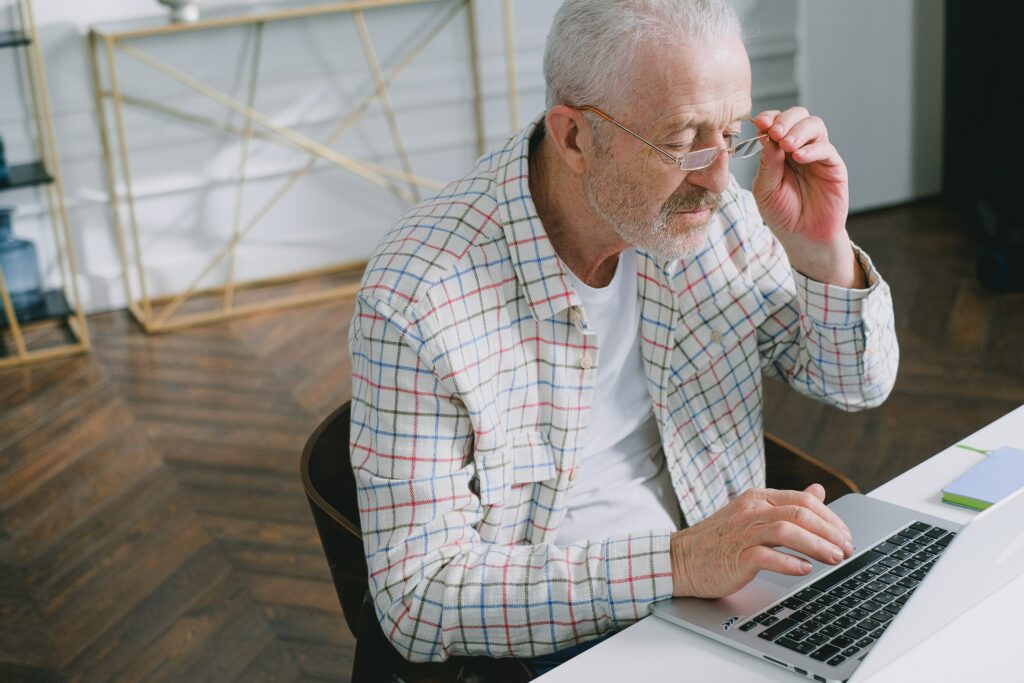
Another factor to falling is impaired vision. Many older adults are affected by loss of sight or vision issues that are common as we age. In fact, according to the American Optometric Association, by the time seniors reach 60 years of age, there is a greater chance of eye disorders or conditions, such as cataracts, diabetic retinopathy, glaucoma, or other age-related macular degenerations. These eye diseases can cause a senior to have impaired sight, and making it hard to detect fall hazards. If these occur, contact your doctor for the right treatment as soon as possible.
3. Environmental Hazards
Many falls that happen to seniors is due to their own environment at home. Some environmental factors include poor lighting, loose carpets, and slick floors. Other factors may be the lack of safety equipment, such as no grab bars in the shower, no outdoor ramps and stair lifts, or just too much clutter around the home. All these can jeopardize the safety of a seniors’s safety and cause them to fall and lead to accidents.
4. Chronic Diseases
There are several types of chronic diseases that can cause a person to fall and lose their balance. Examples of these are Parkinson’s disease, Alzheimer’s disease, arthritis, and other problems that affect a person’s mobility to get around. Many can also increase a senior’s risk of falling, slipping, or tripping. Sometimes conditions like neuropathy or having nerve damage can also contribute to falls. Seniors who have problems with their balance may also find it difficult to respond to accidents quickly.
5. Medication Side Effects
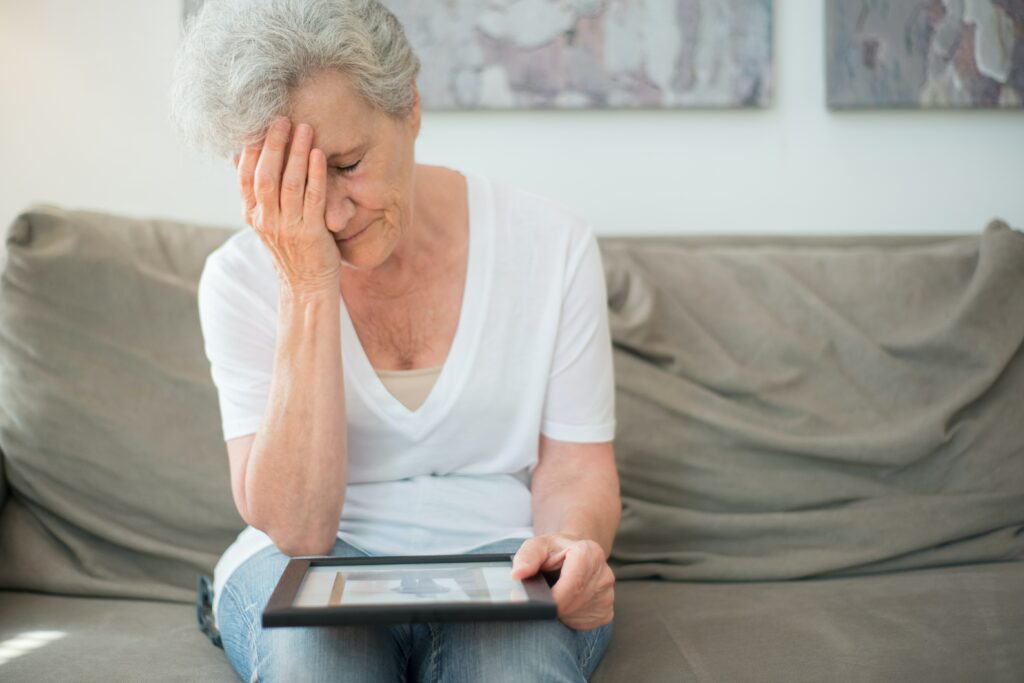
There are many over-the-counter medications and dietary supplements that tend to have strong side effects and can cause imbalance issues with seniors. These may include drowsiness, dizziness, and low blood pressure, which can cause a senior to fall or loose their footing. Other types of medications, such as sedatives, opioids, antipsychotics, antidepressants, and cardiovascular drugs can also cause side effects and increase the risk of accidents or falls. Sometimes polypharmacy drugs can increase adverse reactions in seniors taking them, causing drug-related falls.
6. Surgical Procedures
For anyone that has had surgery knows it can be an unpleasant procedure. For seniors, it can sometimes leave them immobile for quite some time. Especially that the healing process can take longer than for a young person. For example, having a hip replacement can leave a senior with lots of discomfort and pain; as well as difficulties in getting around, compared to before the surgery. Seniors might also find it hard to recover as fast. Surgeries may also affect seniors not only physically, but also cognitively. For some, surgical procedures are just a temporary discomfort; however, it is crucial to get seniors up and moving around quickly as possible. This is when physical therapy or rehabilitation is often suggested.
7. Behavioral Hazards
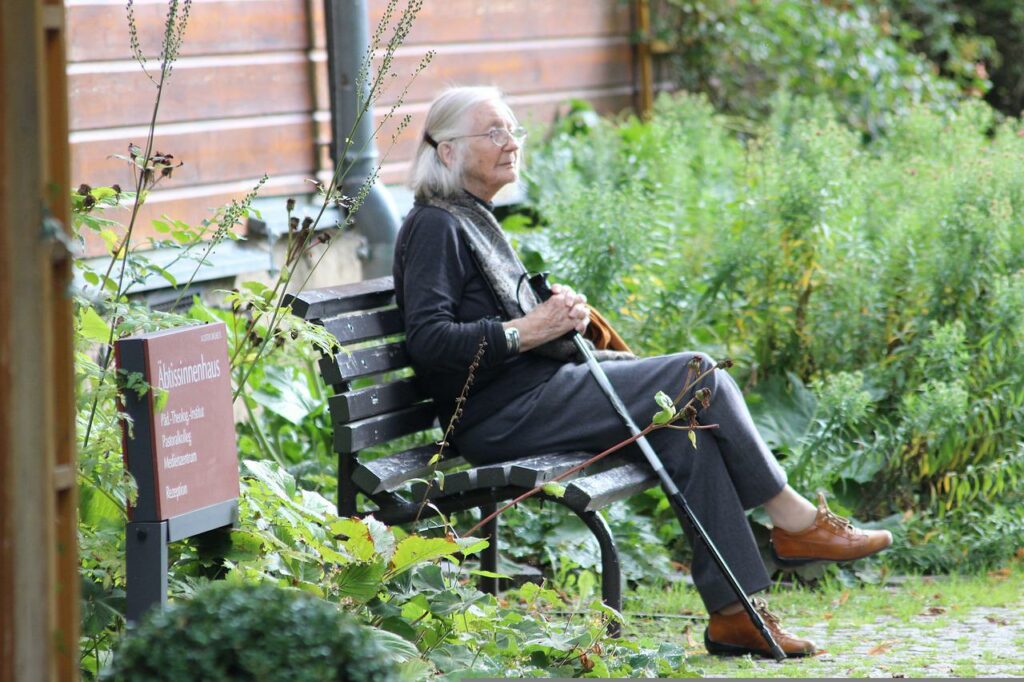
The risk of falls can also happen due to behavioral hazards. Types of these hazards include participating in normal daily routines that could put a strain on a senior’s level of physical demand to do certain activities. Some seniors may feel exhausted just putting up laundry or can find it hard to walk a basket of clothes up and down stairs. Caregivers should work with seniors when adapting new safety protocols, especially after a fall. Seniors should also invest in non-skid shoes, to help prevent falls and so they don’t lose their balance.
Nine Tips To Help Prevent Falls
There are a variety of reasons why falls happen among seniors. For instance, your senses are not as sharp as they once were. You may have poor eyesight, hearing loss, or your reflexes may be declining. Whichever it is, know that there is help in preventing falls that you can do; whether it be in your home r when you are out on the town. Below are a handful of simple tips to help seniors from falling.
1. Remove Clutter
By the time we get into our 60s or older, we tend to accumulate lots of things. Some seniors have many items within their home that they have collected over the years. And there’s nothing bad about that. But it can become a problem, if you have mobility issues and find it hard to move from one room to the next. Seniors with mobility concerns should put up things in its right place and off the floor. Having a clear path will help prevent falls, and also make the home less cluttered.
2. Stay physically active
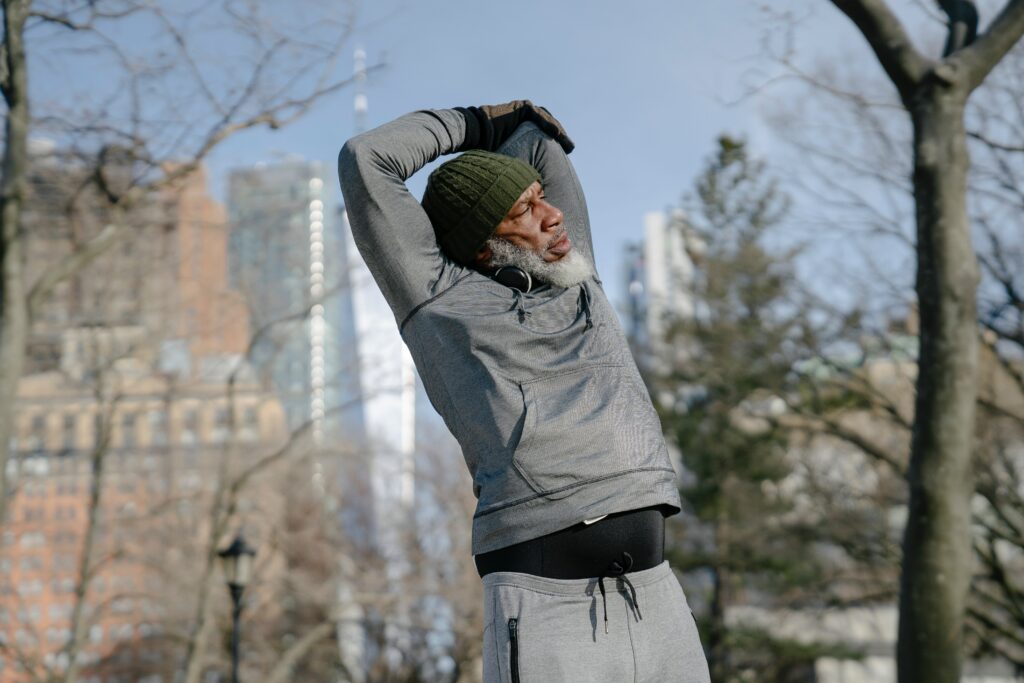
Seniors who participate in an exercise routine or workout on a regular basis can lower their chances of falling and lesson the risk of a serious injury. Staying active and healthy builds good bone structure and increases your mobility as you age. An exercise workout, such as walking, can also slow the chance osteoporosis, which is a disease that can make bones weak and break easily.
3. Get into balance and strength training exercises.
Along with a good exercise routine, seniors should also consider strength training. Examples of these include Yoga, Pilates, and tai chi. All of which is known to improve balance and muscle strength. Some seniors who have good strength may also want to try lifting weights. Seniors can also use resistance bands to help build strength.
4. Improve your sleep habits
The average person needs about seven to eight hours of sleep each night to feel well rested for the next day. However, each person’s sleep patterns may vary. A young adult may feel fine after only six hours of sleep. For seniors, getting enough sleep can help them focus better throughout the day. On the other hand, seniors who lack the right amount of sleep, can feel tired and uncoordinated while moving in and around the house, which increases your chances of a stumbling or falling. When seniors, or anyone for that matter, does get a good night’s sleep, you are more cognitively aware of your surroundings, which can help prevent you from a fall.
5. Have regular medical exams
Getting routine health checkups can help seniors avoid unnecessary problems as they get older. Most doctors encourage their senior patients to receive annual hearing and vision exams. For seniors who makes vision care a priority will see better and with more clarity. The same goes with your hearing. Scheduling routine ear exams are important because it is your inner ear that maintains balance. When you have an ear infection or some form of deterioration in the ear canals, you are more prone to falls.
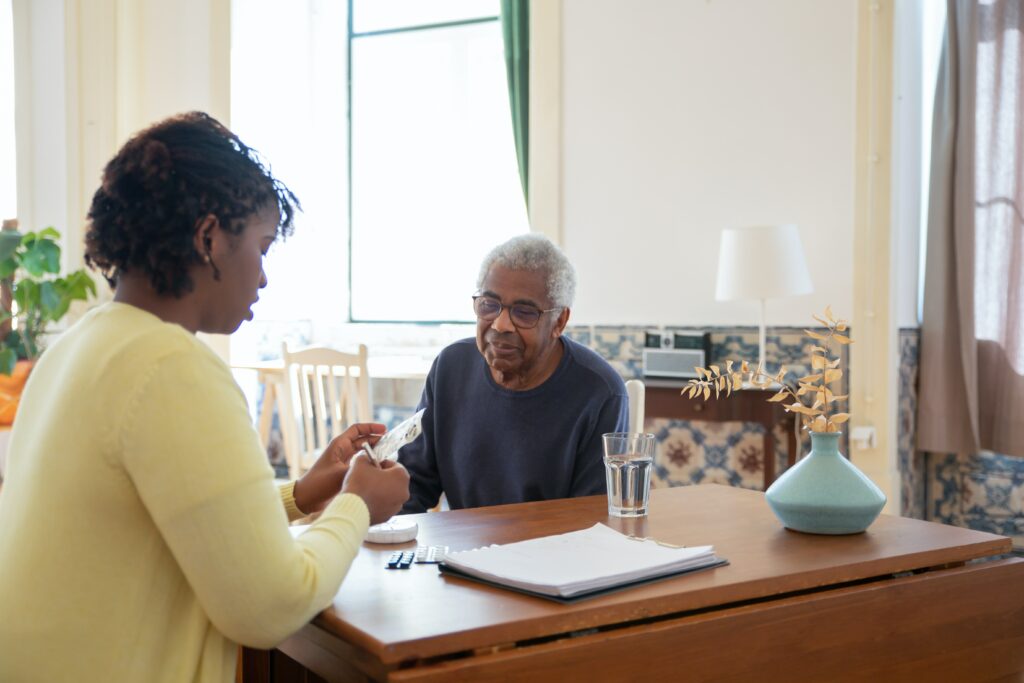
6. Be aware of medications
Every type of medication has some side affects. However, staying on top of what kinds of problems they can have on your health is important. Some types of meds may have short term affects, while others may linger much longer. Examples of side affects are blurred vision, drowsiness, dizziness, and incoherent speech. Each one may affect how a person walks, speaks, or sleeps. Sometimes all three can be present, making it more likely for seniors to fall or lose their balance, and possibly hurt themselves as well.
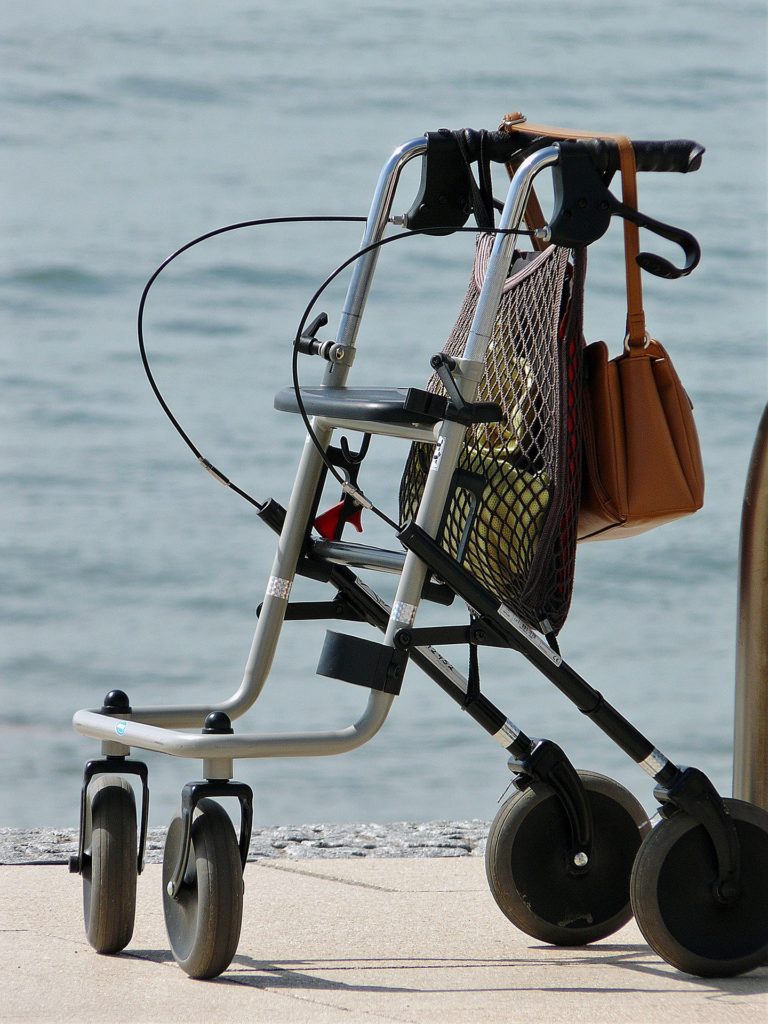
7. Use mobility aids
Many seniors try to avoid using mobility aids, such as canes and walkers because they strive to look independent and may feel they that they have no use for them. However, it is better to use these assistance devices, even temporarily, because it can prevent you from falling. Those that use either canes, walkers and wheelchairs can provide you with something to lean on, improve your balance, and can lower the risk of a fall. There are many types of assisted devices; choosing the right fit and size is important for seniors to maintain good balance. If you are using a walker, make sure the wheels roll smoothly. Speak with your doctor on which devices are best for you and how to correctly use the equipment.
8. Invest in nonslip walking shoes
It may be nice to wear some soft slippers while hanging around the house, but investing in some good slip-resistant shoes can keep you from falling, especially on slippery floors, such as tile, concrete, and wood surfaces. Seniors should look for good walking shoes with low or no heels and rubbery soles to reduce the risk of falling. In fact, using unsafe footwear can increase the risk of falling, especially for shoes with no backs. Seniors should stay indoors during bad weather. However, if you must go outdoors, seniors should invest in a good pair of boots, especially where snow and ice are present.
9. Slow down and stop rushing
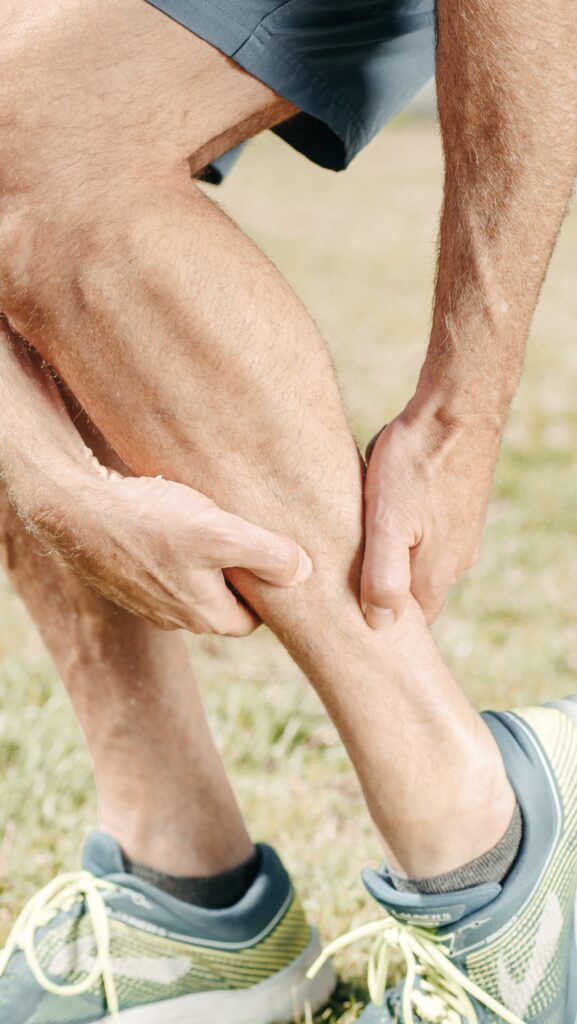
Most people fall simply because they are moving too fast. For seniors, moving fast can lead to falls. You can lose your balance when you are too much in a rush, and that can lead to even more serious problems like a broken bones or fractures. Taking one step at a time is the key. Also, when you are sitting, do not get up too fast. If you stand too quickly, there is a higher chance of falling. Plus, getting up fast can affect your blood pressure and you may feel dizzy afterwards. If you do feel dizzy, sit down and rest immediately.
How to keep your bones strong
Taking a fall can leave a person in lots of pain and possibly immobile, especially if the fall turns into a serious injury. Those who do have an injury from falling, it can put them in the hospital or send them to a nursing home. However, if you have strong bones, the fall may not be as bad. Studies suggest seniors to get enough calcium and vitamin D in their diet to keep their bones strong. Another way seniors could keep your bones strong is by staying physically active. To maintain good bone heath, seniors should also consider quitting smoking and avoid drinking alcohol. Both tobacco and alcohol use may decrease your bone mass, increase the chances of fractures, and can also lead to balance problems or falls.